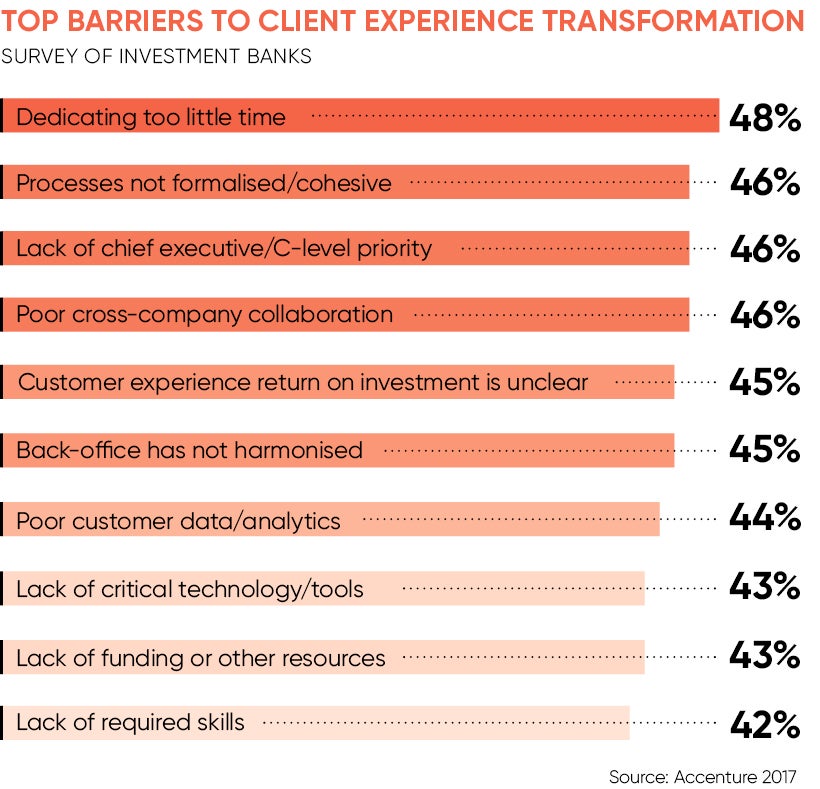In a highly commoditised and increasingly competitive environment, becoming more customer centric is a priority for all financial services institutions. Against a backdrop of regulatory, economic and market change, putting the onus on the customer can help drive both growth and profitability.
Not surprisingly, the UK remains home to Europe’s largest retail investment market and with this comes a wealth of products, markets and platforms all vying for market share.
For budding retail investors, the opportunities and abundance of information available in an increasingly digitalised world means they can now trade in an unprecedented way, and comparing and switching trading venues has never been easier.
With so many players jostling for traders’ business, the tide has firmly changed and brokerages must rethink their strategies if they are to stand out. For many, this hinges on personalising the service and focusing on customer experience.

Brokerage ATFX has pledged its commitment to providing the best possible experience for clients, with a state-of-the-art, mobile-accessible client portal and account management with 24/5 localised support services, which it believes sets it apart from competitors in a vastly homogenous market.
ATFX chief executive Richard Craddock says: “We want to be the market leader in customer satisfaction, and this is driven by experienced, long-term professionals who have a true knowledge and understanding of what our clients want.”
For Mr Craddock, an important aspect of exceptional service is by providing staff who speak their clients’ mother tongue.
He says: “We noticed through the recession that a lot of the capital flows were coming from pan-European investors and we have acquired a small team of talented multi-lingual staff to deal with those investors, including clients from the Chinese expat community who speak exclusively Mandarin and Cantonese. Being able to offer our clients someone who can speak and explain to them in their mother tongue is a really important part of making our clients feel cared for.”
In a market dominated by the larger players, it can be even more pertinent for smaller firms to have a differentiator that delivers value beyond their competitors
In a market dominated by the larger players, it can be even more pertinent for smaller firms to have a differentiator that delivers value beyond their competitors. There are, of course, challenges; it’s not always easy to be heard and smaller firms may have to prioritise resources to enhance their customer service proposition. However, smaller players have the advantage of being nimble and progressive, unencumbered by legacy systems and practices.
Nick Cooke, managing director of Global Markets Group, believes brokerages should look at the proposition through the eyes of the clients, evaluating what it is they want, use and hope to achieve.
He says: “The type of client we have varies greatly; some will see trading as a hobby while others will take it very seriously and use it as a second income. When a client first comes on, we find it important to have an initial consultation call so we can learn exactly what their needs are and ensure we can tailor our offering to meet their expectations.”
The rise in technology in recent years has reshaped how customers use and interact with their trades. The days of simply picking up the phone or enjoying long, leisurely lunches are of a bygone era, but brokerages have to strike a careful balance between offering a personal touch and keeping pace with the rapid digitalisation of the markets.

Mr Craddock says: “Previously, the most successful sales guys were those who had the best rapport with their clients and that came from face-to-face and over-the-phone contact. That industry has disappeared now, but it’s important not to forget the personal touch because that’s what builds loyalty and long-lasting relationships.”
What is clear is that firms must develop an understanding of their clients’ trading preferences to tailor their offering and ensure customer satisfaction. Those who fail to respond to the changing dynamics will fall behind.
Danny Cox, head of communications at Hargreaves Lansdown, says the firm has noticed a significant increase in the number of clients looking to interact on their mobile device, be it a phone or tablet.
He says: “We survey our clients and listen to what they want and respond accordingly so we can make their experience as desirable as possible. The huge growth in digitalisation has meant clients have migrated from telephone and post to online. If a firm doesn’t allow mobile capability for their clients then they really have been left behind.”
Hargreaves Lansdown recently relaunched its mobile app and, for Mr Cox, the focus has been on enhancing the functions that clients really want rather than creating an all-singing, all-dancing app.
The firm also has around 220 people working on its telephone helpdesk, and invests a lot of time and resources in training staff so clients can receive an immediate answer.
While online interaction has gathered a great deal of pace, it’s still important as a business to offer offline support
Mr Cox says: “A lot of the time, people just want to confirm something they’ve read and ensure they’ve understood it properly. While online interaction has gathered a great deal of pace, it’s still important as a business to offer offline support. We really mould our training and help around what our clients want.”
With more than a million clients, is it difficult for the larger outfits to retain their personal touch? Not so, according to Mr Cox, who says Hargreaves Lansdown prides itself in providing a personal touch in spite of size.
He says: “That personal touch really comes into play when people need support. We make sure that we never send automated responses; our clients can be assured that they will receive a comprehensive answer from a real person within a matter of hours.”
However, giving clients the best possible experience does not solely depend on the level of customer service, but through creating a transparent and secure trading environment. While the UK’s financial services industry is undeniably an innovator, its reputation for trust and honesty still lags many other industries.
Introduction of the second European Union Markets in Financial Instruments Directive in January 2018 will seek to make investing more transparent for retail and institutional investors, and brokerages that have already embraced this changing tide will lead the way.
Mr Craddock concludes: “Ensuring people know what they’re doing is crucial. You can’t give someone a product with no understanding of what it is, and I think the more education, discussion and transparency we can create, the better for the industry overall.”


